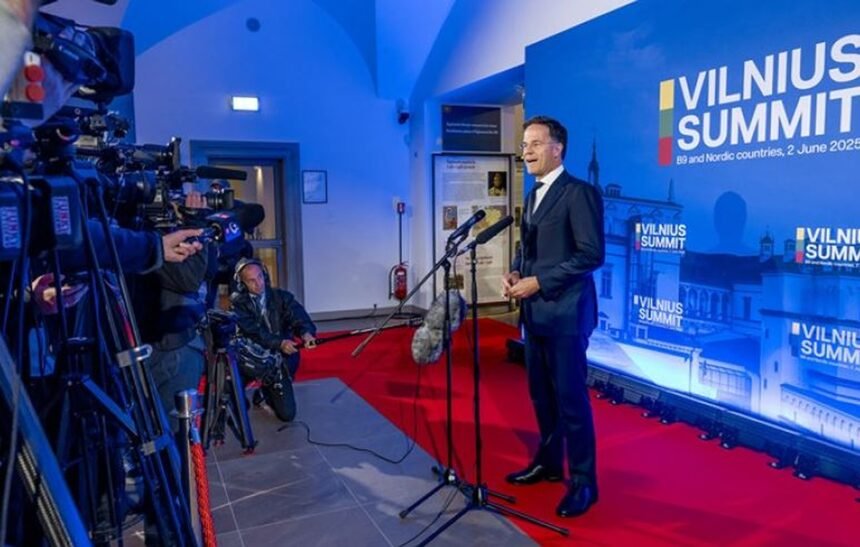NATO Secretary General Mark Rutte has called for significantly higher defense spending in light of the ongoing geopolitical confrontation with Russia.
“We must be prepared, and that means spending significantly more than the 2% target we’ve grown accustomed to,” Rutte stated during a visit to Lithuania.
According to him, the current annual defense spending target of 2% of the alliance’s GDP is no longer sufficient to address today’s security challenges.
Lithuanian President Gitanas Nausėda also urged allies to invest substantially more in their militaries, warning that “Russia is not waiting.”
He emphasized that Russia is working to consolidate and rebuild its armed forces as quickly as possible.
“We have very limited time to do the same. I hope we will be able to agree on a 5% GDP target,” Nausėda said.
Rutte attended a one-day meeting of the Bucharest Nine (B9) and Nordic countries in Vilnius, which also included Ukrainian President Volodymyr Zelensky. The summit served as preparation for the upcoming NATO Summit in The Hague, set to take place in about three weeks.
The NATO chief thanked President Nausėda for organizing the meeting and praised Lithuania’s leadership and commitment to NATO.
“Lithuania is a steadfast ally and continues to lead by example,” said Rutte, highlighting Lithuania’s current defense investment of over 4% of GDP and its plans to increase it to 5–6% by 2026.
“This sends a very strong message of commitment to our collective defense and sets an example for other allies. It is clear from our discussions today that the commitment to collective defense is strong,” Rutte added.
The leaders discussed further strengthening NATO’s deterrence and defense capabilities.
“We are facing the most dangerous security environment in decades. We are not at war—but we are not at peace either,” Rutte warned.
He emphasized the need to focus on war readiness, including more well-trained, well-equipped, fully supported, and sustainable forces.
Rutte expressed his expectation that the upcoming NATO Summit in The Hague will demonstrate the Allies’ lasting commitment to collective defense—through increased defense investments, defense industrial production, and agreement on new, ambitious capability targets.
The B9 includes Poland, Romania, Bulgaria, Hungary, the Czech Republic, Slovakia, and the three Baltic states—Estonia, Latvia, and Lithuania. The Nordic states involved are Finland, Sweden, Norway, Denmark, and Iceland.







